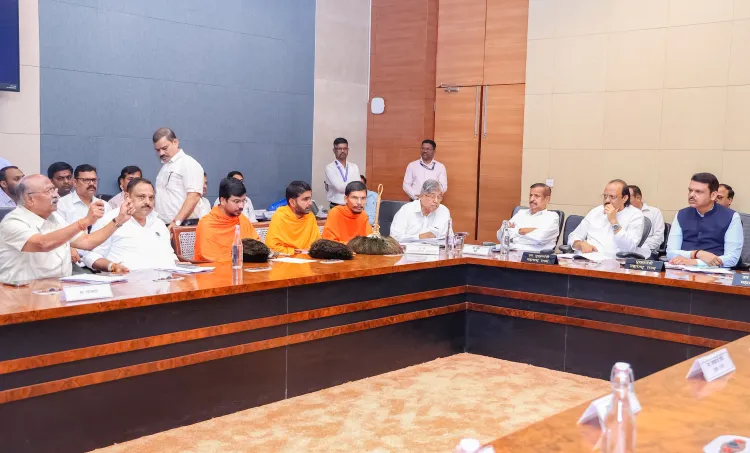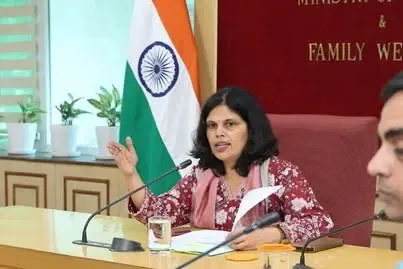What Policy Did the Maha Cabinet Approve for Government Land Allocation?

Synopsis
Key Takeaways
- Maharashtra Cabinet approves allocation policy for small government lands.
- Policy targets lands unsuitable for construction.
- Landholders to receive official ownership of neglected plots.
- Implementation follows new regulations under the Maharashtra Land Revenue Rules.
- Encourages urban development and minimizes disputes.
Mumbai, Aug 5 (NationPress) The Maharashtra Cabinet, led by Chief Minister Devendra Fadnavis, has taken a significant step by endorsing a policy for the distribution of government-owned or nazul lands that are small, unsuitable for standalone construction, poorly shaped, inaccessible, or landlocked.
The cabinet has resolved to transfer these lands to the current plot holders based on their existing lien. This means that areas behind homes, conservancy lanes, or other neglected lands lacking utility will now officially belong to their rightful landholders.
As stated in a government release, this policy has been developed in alignment with a decision from the Revenue and Forest Department dated October 9, 2024, and it will be enforced under newly introduced Rule 37A of the Maharashtra Land Revenue (Disposal of Government Lands) Rules, 1971.
According to the government release, the cabinet’s decision pertains to small plots that are not viable for construction, irregularly shaped, or lacking easy access. This includes government or nazul lands that are completely surrounded and inaccessible.
The policy is designed to benefit those lands that have only one adjacent plot holder. If the plot holder currently holds a lease, the newly allocated land will also be leased at the same rate. For those in possession of the plot (Class-2), the land will be provided at the full market price. In the case of Class-1 occupants, land will be offered at the full price plus a 25% premium, totaling 125%.
In instances where multiple plot holders express interest, written consent from all neighboring holders is mandatory for a single land allocation. If consent is not obtained, an auction will determine the allocation, favoring the highest bidder. If a Class-1 holder bids, the land is awarded at the auction price or 125% premium, whichever is higher, as per the government release.
The cabinet's decision specifies that this policy will only apply within the Municipal Corporation and Municipal Council regions. In Mumbai, prior governmental approval is necessary from the District Collector. The area of the plot cannot exceed 10% of the original plot, and the floor space index must not be allocated elsewhere. Clarity regarding the positioning of telephone cables, electrical wires, and other utility services, whether underground or above, is essential. Development must adhere to local authority regulations.
The government hopes that these neglected small government lands will officially fall into the hands of rightful owners, which will help eliminate encroachments, reduce complaints, and resolve legal conflicts. Additionally, this initiative aims to promote a more structured and planned approach to urban development.









